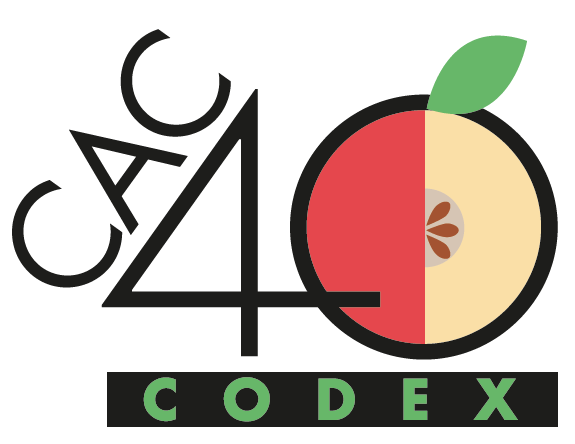40th Codex Alimentarius Commission begins in Geneva Monday 17th
More than 50 standards and 30 new work proposals to be examined at CAC40
More than 600 delegates from over 120 countries will gather in Geneva this week to take important decisions on international food safety standards.
Over 50 standards will be examined together with more than 30 proposals for development of new work or revisions of current Codex texts.

Highlights
Highlights of the meeting include decisions on:
- Guidelines on nutrition labelling (nutrition information on food packaging for consumers)
- Code of hygienic practice for fresh fruits and vegetables
- Maximum residue limits for more than 20 pesticides in various foods
- Maximum levels of certain food additives
- Maximum level of lead in processed fruits and vegetables
- Maximum residue limits in meat for veterinary drugs (ivermectin, lasalocid sodium and teflubenzuron)
- Code of practice for the prevention and reduction of arsenic contamination in rice
- Standards for cumin, thyme, & black, white, green pepper
New work
Some of the new work proposals include the Codex task force on antimicrobial resistance; establishing maximum levels of mercury in fish; guidelines for risk analysis of chemicals inadvertently present in food at low levels, and a new code of practice for reduction of chemical contaminants in refined oils and products made with refined oils such as palm oil.
The meeting runs from Monday to Saturday and there will also be a range of side events for delegates on topics including whole genome sequencing and standards for alcoholic beverages.
Links
Visit the CAC40 meeting page here.
Watch the entire week in live streaming in 6 languages
Learn more about Codex side events
Follow live updates here or on the WHO and FAO websites.
Social Media
To get updates on items as they are adopted, follow #Codex and #CAC40, @FAOWHOCodex, @WHO and @FAOnews on Twitter.
Codex: safe, good food for everyone
At the heart of the Codex mandate are the core values of collaboration, inclusiveness, consensus building and transparency. Governmental and non-governmental, public and private organizations alike play a vital role in ensuring Codex texts are of the highest quality and based on sound science.
Codex would have little authority in the field of international standard setting if it did not welcome and acknowledge the valuable contributions made by observers. Expert technical bodies, industry and consumer associations
contribute to the standard-setting process in a spirit of openness, collaboration and transparency.
Intergovernmental organizations (IGOs) and international non-governmental organizations (NGOs) can apply for observer status in Codex in order to attend and put forward their views at every stage of the standard-setting process.
 Current Codex Alimentarius Commission
Current Codex Alimentarius Commission
40th Codex Alimentarius Commission begins in Geneva Monday 17th
More than 50 standards and 30 new work proposals to be examined at CAC40
More than 600 delegates from over 120 countries will gather in Geneva this week to take important decisions on international food safety standards.
Over 50 standards will be examined together with more than 30 proposals for development of new work or revisions of current Codex texts.

Highlights
Highlights of the meeting include decisions on:
- Guidelines on nutrition labelling (nutrition information on food packaging for consumers)
- Code of hygienic practice for fresh fruits and vegetables
- Maximum residue limits for more than 20 pesticides in various foods
- Maximum levels of certain food additives
- Maximum level of lead in processed fruits and vegetables
- Maximum residue limits in meat for veterinary drugs (ivermectin, lasalocid sodium and teflubenzuron)
- Code of practice for the prevention and reduction of arsenic contamination in rice
- Standards for cumin, thyme, & black, white, green pepper
New work
Some of the new work proposals include the Codex task force on antimicrobial resistance; establishing maximum levels of mercury in fish; guidelines for risk analysis of chemicals inadvertently present in food at low levels, and a new code of practice for reduction of chemical contaminants in refined oils and products made with refined oils such as palm oil.
The meeting runs from Monday to Saturday and there will also be a range of side events for delegates on topics including whole genome sequencing and standards for alcoholic beverages.
Links
Visit the CAC40 meeting page here.
Watch the entire week in live streaming in 6 languages
Learn more about Codex side events
Follow live updates here or on the WHO and FAO websites.
Social Media
To get updates on items as they are adopted, follow #Codex and #CAC40, @FAOWHOCodex, @WHO and @FAOnews on Twitter.
Codex: safe, good food for everyone
 Codex and Observer
Codex and Observer
around the world since ancient times.
We might not always know where it comes from,
but we expect it to be available, safe and of good quality.










Leave a comment